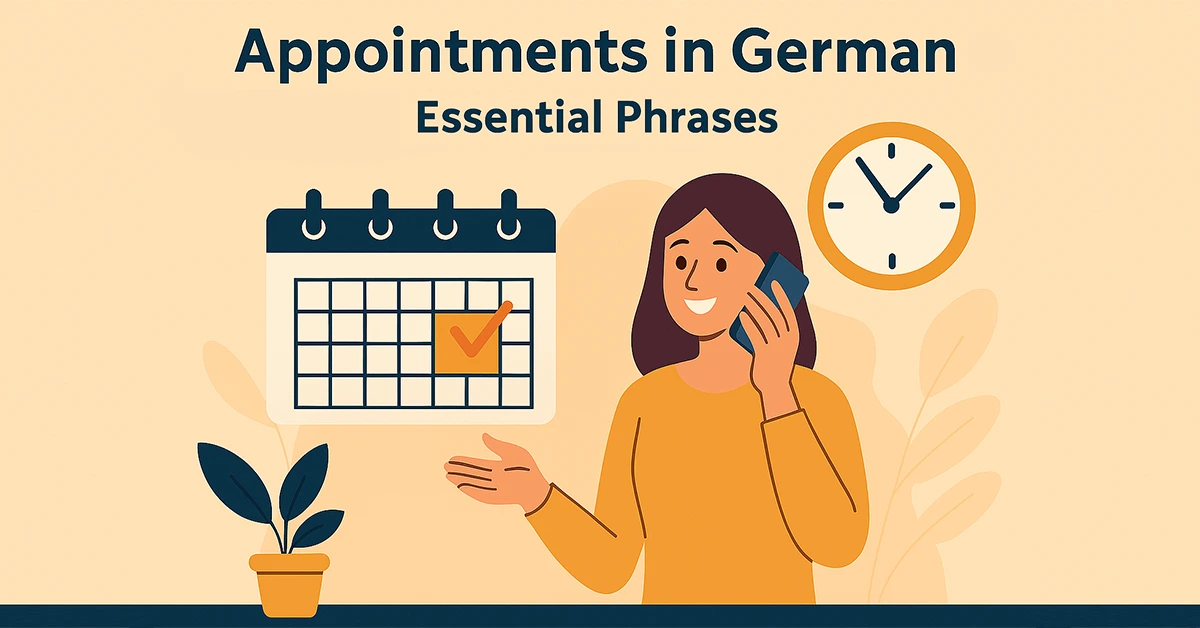German for Daily Life
-

German for Parents – Talking to Teachers and Schools in Germany
Learn essential German for parents to communicate with teachers and schools in Germany. This complete guide includes phrases, tips, and examples for real-life situations.
-

German Phrases for Apartment Hunting in Germany
Learn the most useful German phrases for apartment hunting and confidently find your new home in Germany. Includes vocabulary, examples, and practical tips.
-

Essential German Language Tips – Survival Guide for Beginners
Learn essential German language tips for life in Germany. This beginner’s survival guide covers daily phrases, vocabulary, and practical advice for confident living.
-

Making Appointments in German – Essential Phrases
Learn 50+ essential German phrases & real-life dialogues for making appointments. Doctor, salon, office & more. Download your free PDF cheat sheet!